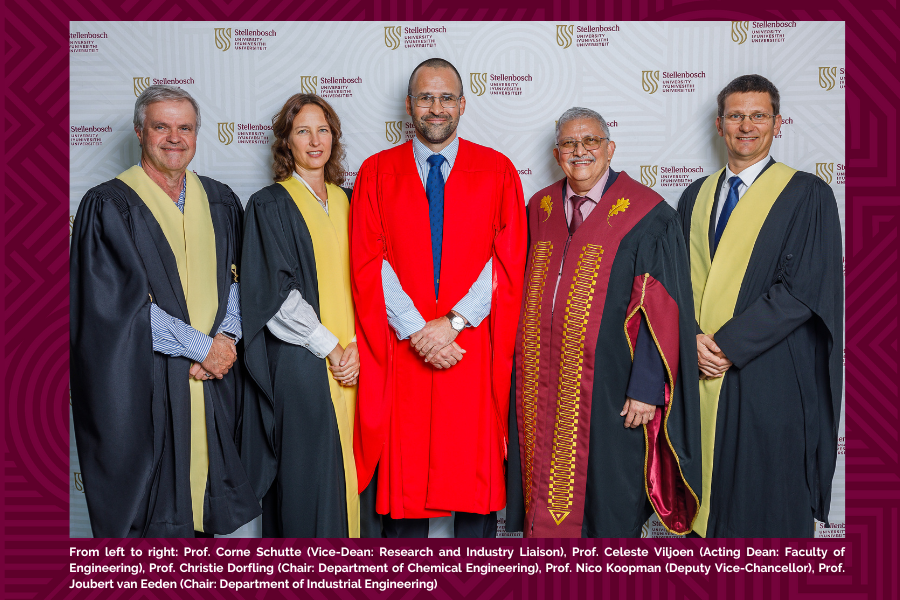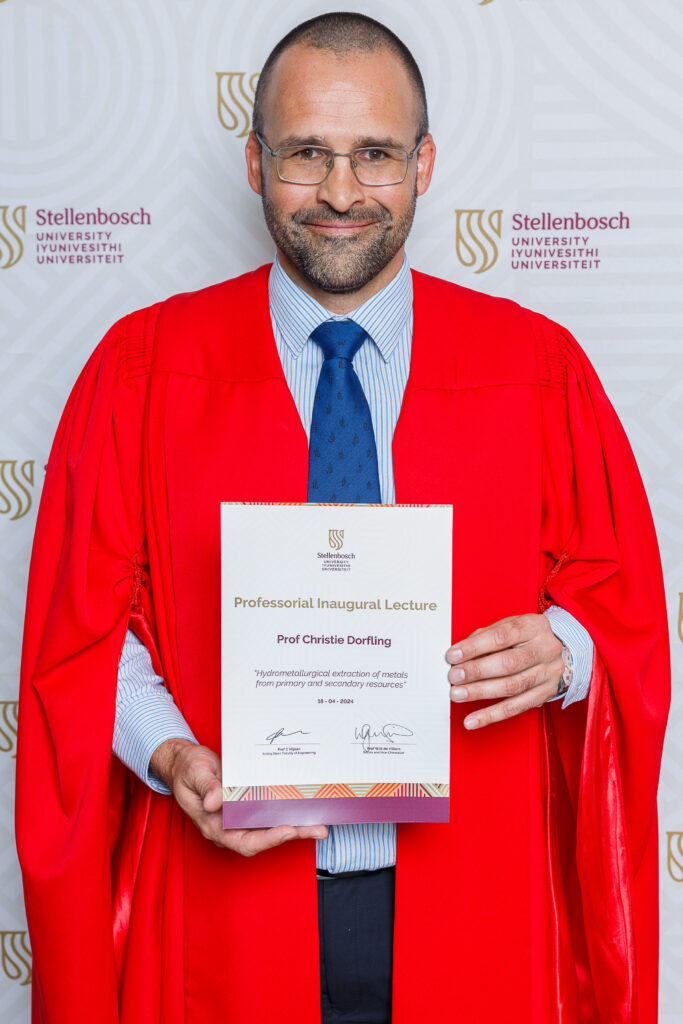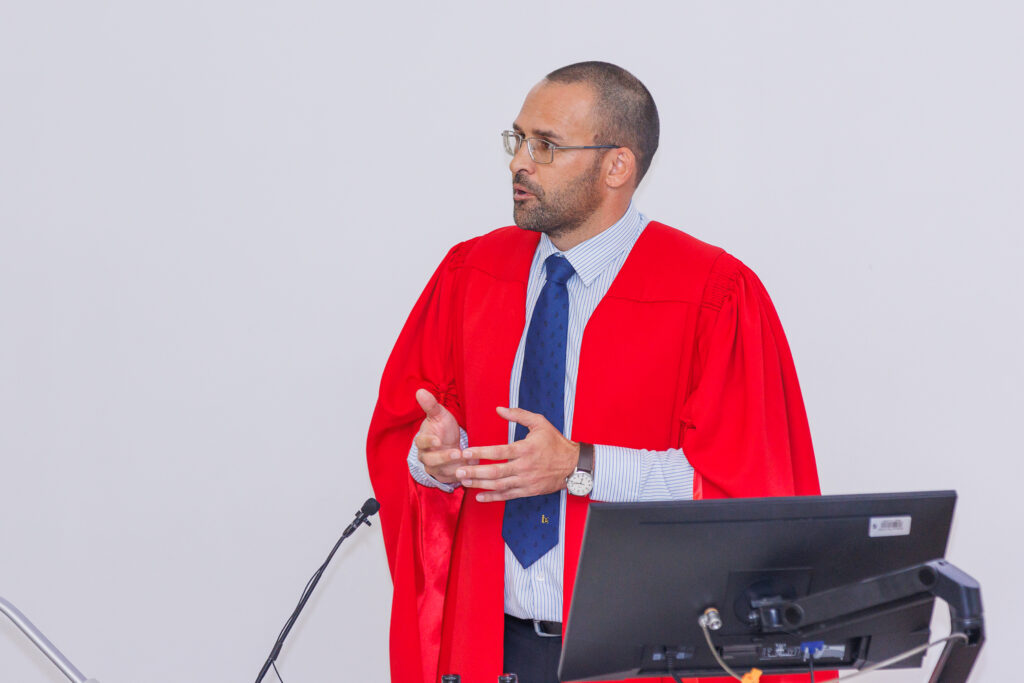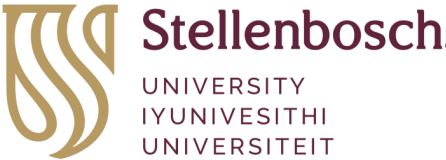
Prof. Christie Dorfling, Chair of the Department of Chemical Engineering at Stellenbosch University (SU), delivered his inaugural lecture on Thursday, 18 April 2024. Titled “Hydrometallurgical Extraction of Metals from Primary and Secondary Resources,” the lecture highlighted his contributions to the field.

His lecture presented an overview of research conducted in hydrometallurgy, with a focus on modelling, optimising, and intensifying existing hydrometallurgical processes, as well as process development for metal recovery from secondary resources. The research includes experimental investigation, as well as fundamental modelling of hydrometallurgical processing steps, such as leaching, solution purification (e.g. solvent extraction, ion exchange, and precipitation) and metal production (e.g. electrowinning). These activities are supplemented by the development of potential process flowsheets, associated techno-economic evaluations of processes, and environmental impact assessments, which inform decision-making regarding process selections and identify areas for further research and development.
Prof. Dorfling began his academic career with a Bachelor of Engineering in Chemical Engineering from SU in 2005. He gained industry experience before pursuing advanced studies, including an MPhil from the University of Cambridge and a PhD from SU. Since 2009, Prof. Dorfling has been a full-time academic staff member at SU’s Department of Chemical Engineering. His research interests in hydrometallurgy include characterising and modelling leaching systems, recovering base and precious metals from leach solutions, and developing processes for metal recovery from low-grade ores and secondary resources. To date, he has supervised 3 PhD and 37 MEng research studies to completion and previously served as an undergraduate programme coordinator in the Department.
When asked about his inspiration for pursuing a career in academia and specialising in hydrometallurgical extraction, Prof. Dorfling shared insights from his early experiences in the mining and metals industry. He stated: “I started my career working as an engineer in the mining and metals industry; during this time, I gained experience in a range of aspects associated with the mineral processing and extractive metallurgical industries. The technical challenges inherent to complex processes and continuously changing conditions in the mining and metals industry made me realise the importance of good research in this industry.”
According to Prof. Dorfling the impact of research in hydrometallurgical extraction is significant. It addresses the critical need for high technology metals by developing novel processes for their economic recovery. Additionally, it contributes to the treatment of secondary metal resources, supporting economic sustainability and environmental management in alignment with the global drive towards a circular economy.
Reflecting on his appointment as a full professor, Prof. Dorfling expressed gratitude for the recognition: “Being recognised as a professor is an honour and it opens up new opportunities. I have been very fortunate to be supported by colleagues and postgraduate researchers on this journey and am grateful for their valuable contributions.”
In discussing future goals, Prof. Dorfling stated: “From a research perspective, I would like to further the impact of my research and contributions to the minerals and metals industry in South Africa. In my current role as Chair of the Department of Chemical Engineering, I would like to see it continuing to build its reputation as a department that not only offers excellence in undergraduate teaching and research but also creates an environment where students and staff can reach their full potential.”
The Department congratulates Prof. Dorfling on his promotion to full professorship, acknowledging his significant contributions to research and teaching within the field of chemical engineering.





